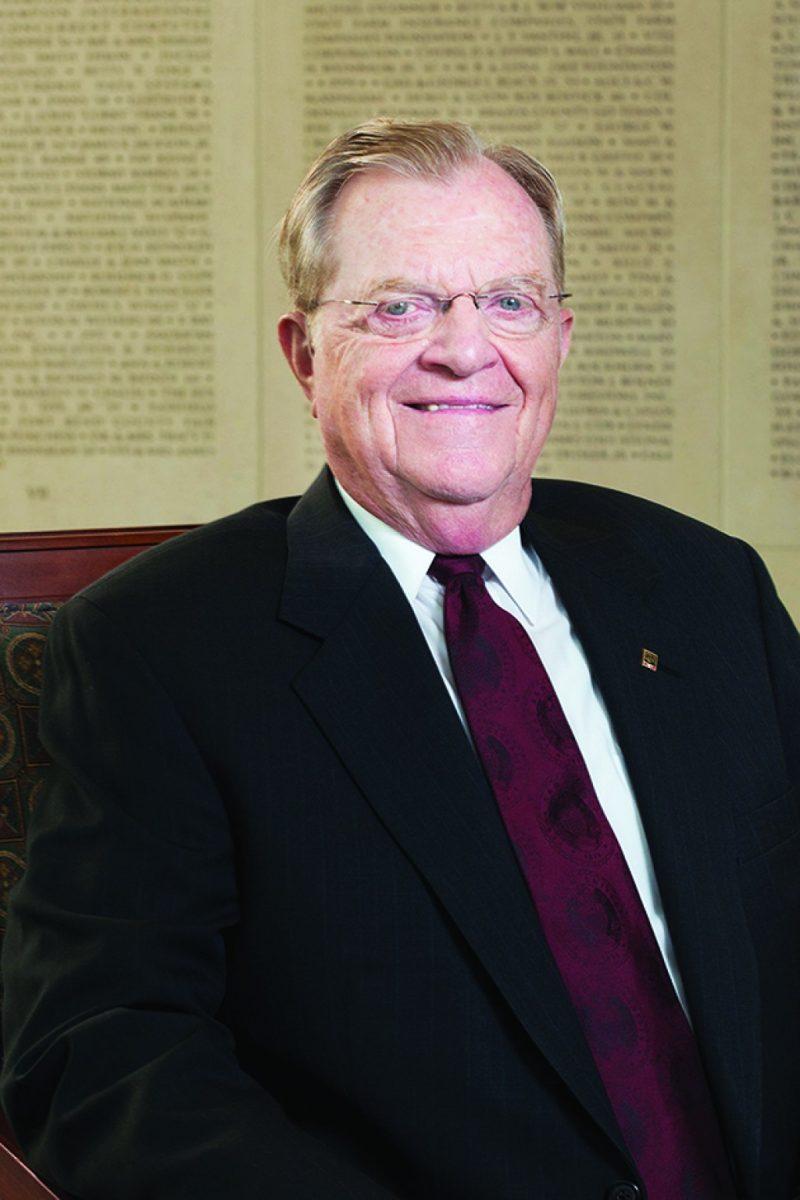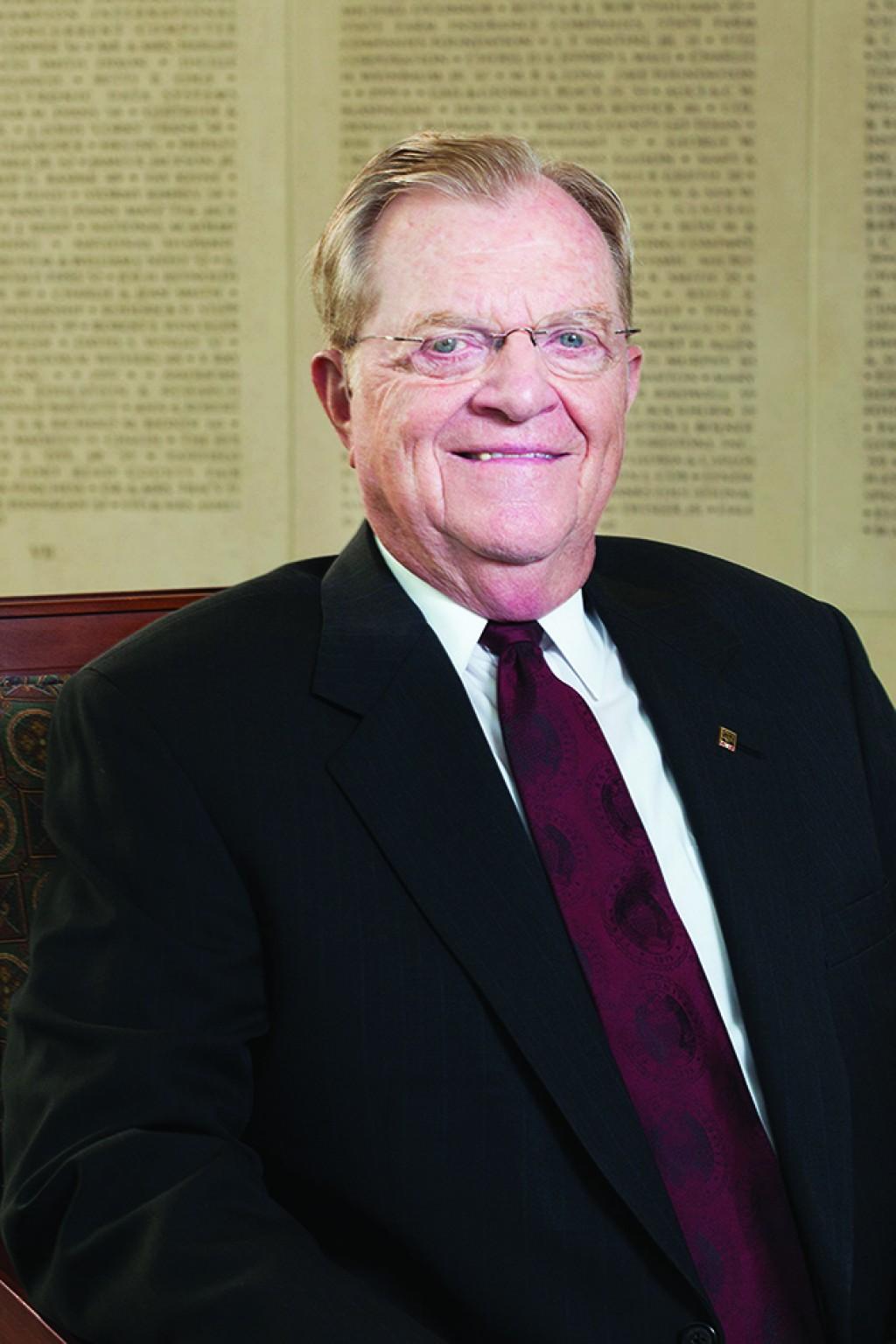Aimee Breaux, city desk writer, sat down with Robert L. “Bob” Walker, senior executive for development, to discuss his affiliation with A&M for more than 60 years.
THE BATTALION: What drew you back to A&M after graduating?
WALKER: Well, after I graduated, I went to California and worked at Pepperdine University for a few years and when I had a chance to come back here, I couldn’t wait to get back. My wife and I met here on the campus. Her father was a math professor here. We met at summer school and so it was like coming back home. We had three sons and a daughter who were born in California, but we wanted them to see Texas, so we all came back in ‘68. I’ve been here since and I’ve had no desire to go somewhere else.
THE BATTALION: What attitude did you take toward fundraising?
WALKER: The attitude that I developed after I got here is that every Aggie believes in A&M and that was a positive that I liked in the former students that I saw. So, it was much easier when you had an audience with people who believed in what the University was doing. And everywhere I went — Aggies, they love A&M, they were ready to talk about A&M and so it was an opportunity just to present them with opportunities to hand out a scholarship, or provide for a professor or help build a building or whatever it might be. I think the key to my success over the years has been that I have always felt that you need to build a relationship with somebody first. If you are asking for a sizable gift, they, don’t just give the first time you meet them. Sometimes it takes years. The larger the gift, the longer the relationship process takes. If I were coming to you and asking for a century club membership or a $100, we might just have lunch and you write a check, but what if I were asking you for a half a million dollars, and assuming you could, you’re not going to do it all the time. It’s going to take some time. It’s kind of a courtship in a sense.
THE BATTALION: What was the most rewarding part of fundraising?
WALKER: The most rewarding part was seeing people after they made a gift, for example someone who donated a gift to the President’s Endowed Scholarship. It was such a treat to watch them meet their student that was on their scholarship and that put personality into their gift, and they were real happy that they were helping this young man or this young woman. And, it did the student so much good to meet the donor, somebody who thought not of A&M to provide a scholarship to help them go to school.
THE BATTALION: Are there any particularly prominent problems you faced when fundraising?
WALKER: No, I’ve always had the attitude that fundraising is selling — that’s what it amounts to. Not everyone is going to say yes when you ask them to buy your product, but I’ve always had the philosophy that if a person is capable of giving, it’s a matter of time until they give. That’s a positive attitude that I think everyone in fundraising has to have. If a person is not capable of giving, then you are not doing your job right. You need to talk to people who have the capacity to give, whether that is a $100 or a million dollars. You need to know something about them to know if they are capable of giving. I’ve never found that people were put down, by asking [people] for more than they can give. They were always humbled that you thought they could give that much. But it’s a whole lot, like when you’re going in to buy a new car. They don’t show you the stripped down model, they’ll show you the one with every whistle and bell on it and if it’s more than you can afford, then you go down to the level that you are ready to buy.
THE BATTALION: What changes have you seen on campus during your time at A&M?
WALKER: The growth is the biggest change. When I came here as a student in ‘54, we had about 7,500 [students]. When I came back in ‘68, we had about 14,000 and of course now we have 58,000 plus. The thing that is so good about that is that there are colleges and universities that spend a lot of time trying to recruit students, but here, our problem is, we’ve got too many customers. This last year we had 36,000 applications, and you can’t take them all. It’s impossible.
THE BATTALION: How has fundraising changed during your time at the university?
WALKER: I think we have grown through the years, and we have more and more former students all the time and so you need a larger force. We’ve got development officers for every college and then we have one or two for the Corps and student affairs. But the thing you have to remember is that people don’t just walk in and hand you money, you have to go visit them. Now, there are some rare exceptions, but most of the time we go out and visit with Aggies wherever they live or work and talk about opportunities here, and that’s how you raise money. You don’t do it sitting in an office. Traveling is pretty important.
Q&A with Bob Walker: Funding the Aggie experience
July 20, 2014
0
Donate to The Battalion
Your donation will support the student journalists of Texas A&M University - College Station. Your contribution will allow us to purchase equipment and cover our annual website hosting costs.
More to Discover










